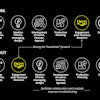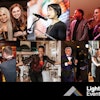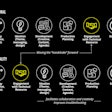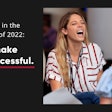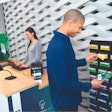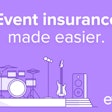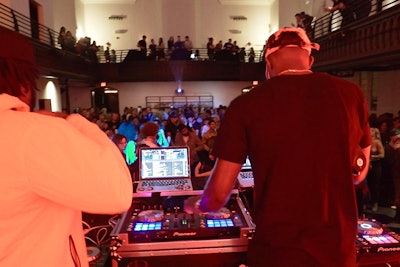
Lisnr uses ultrasonic audio called “Smart Tones” to transmit information between devices via sound that is inaudible to human ears. The tones can be added to existing media, for example music being played by a DJ, or transmitted on their own. To recognize the tones, guests must be using an app that has the Lisnr API embedded in it as well as enable the microphone on their device. Once that microphone is enabled, the app does not need to be open—which minimizes battery drain—and guests don’t need to have connectivity. In October, Lisnr announced a partnership with Splash, an event marketing platform, to create Smart Tone Ticketing. Attendees receive a Smart Tone ticket via email that can be used to check in at an event, without the need for Wi-Fi, Bluetooth, or any other form of connectivity.
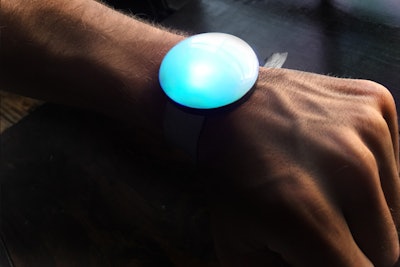
Hurdl has created a text-based data gathering and one-to-one communication system for events. The system is based on a wearable device known as a Pixl. It debuted at the 50th Annual Country Music Association Awards in Nashville in November. Guests activate the Pixl via text and then answer questions created by the host to gather the data they want on their attendees. That data is then used in two ways. First, organizers can illuminate the Pixls to differentiate audience subsets, for example all first-time attendees in blue and all 10-year attendees in green. Second, they can communicate directly with guests via text, either sending the same message to everyone or customizing the information and offers based on the person’s unique characteristics and interests.
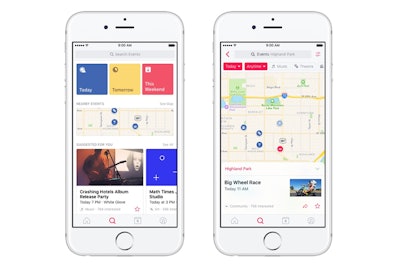
Facebook is continuing to expand its event promotion and discovery tools. Events From Facebook is a new app that launched in October. Users can browse event recommendations from friends and pages they like, find events using an interactive map, and search for events by city. Actions within the app are visible on Facebook so people can see what their friends are interested in. Earlier in the year, Facebook expanded its Facebook Live video tools. Now hosts can share live video just with people who have responded to an invitation, for example offering behind-the-scenes footage, guest interviews, Q&A sessions, and more.
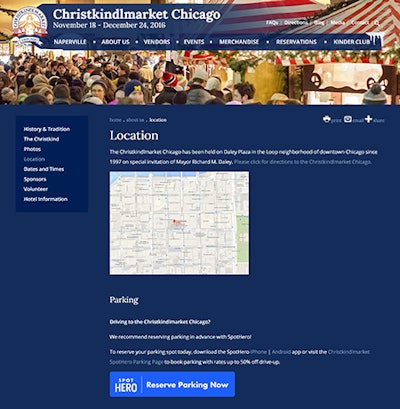
In mid-September, SpotHero launched a new service to help planners provide parking for their guests. SpotHero for Events creates a custom parking landing page that can be embedded on an event’s website and in other communication materials. Guests can use the service to find and reserve parking in advance. The system operates in real time to reflect street closures and construction. It’s currently available in 20 cities across the United States, including Chicago, Los Angeles, New York, and Washington, D.C., with more being added in the coming months.
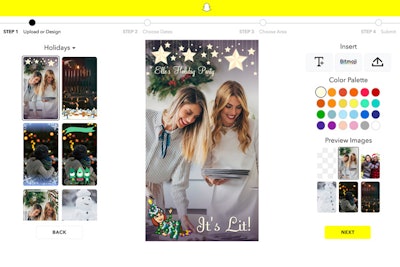
In February, Snapchat began offering on-demand geofilters. The service is intended for individuals and businesses that want to create a geofilter for their location or event, such as a conference or party. Users design the filter, use a map to set the boundaries of where the filter will be accessible, and choose the dates and time it will be available. On-demand filters can be created for 30 minutes or up to 30 days, with pricing starting at $5 depending on the size of the geofence and the amount of time the filter will be available. Hosts also get access to a dashboard to check total views and total uses.
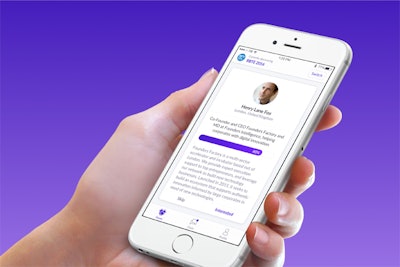
Similar to dating apps, Grip is an app to facilitate networking that requires both parties to “swipe” their interest in connecting. Once that is mutual, it triggers a “handshake” in the app and the two people can then communicate through in-app messages to share ideas and arrange a meeting. Users can log in with their LinkedIn or Facebook accounts and also add a description about their interests. The system’s algorithm uses that data to recommend people to meet. Users can also join any of the more than 500 networking communities that exist within the app. In addition to the Grip app, the company also offers a white-label version for events, and planners can also integrate Grip’s API into their existing app or website.
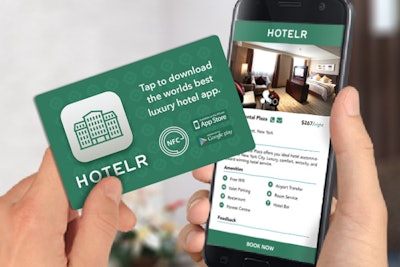
In early August, Tactify launched a new option for cloud-based interaction at events. Tappcards are like credit cards that come pre-programmed with content, such as digital brochures, PDFs, links to download apps, and more. Users access the content by either tapping the card to an NFC-enabled phone, scanning the QR code on the card, or typing in a short URL. Planners can create a custom design on the card to reflect their event’s brand, and they have access to an online dashboard to instantly change the content being offered and to track interactions.
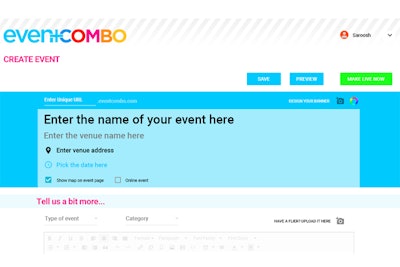
EventCombo is a ticketing system that allows hosts to bundle event tickets with other things attendees may want to purchase, such as meals from nearby restaurants, parking, merchandise, and more. Planners can customize the look of their event page with banners and colors. Merchants use the system to create and manage the deals they want to offer, and the system matches those deals with relevant events. Organizers receive a portion of the money generated by the sale of those items. Events that use the system are also listed on the EventCombo website and promoted through social media. The system launched in June.
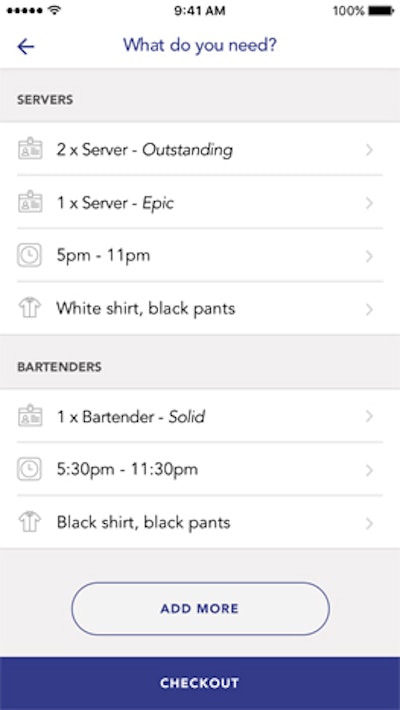
Jitjatjo is an app to facilitate on-demand temporary staffing for venues, caterers, events, and more. When a user requests staffing, the app handles the entire process from hiring through payroll. Requests can be made as late as an hour before a scheduled shift, for examples to replace people who have called in sick or simply don’t show up. The app analyzes requests and selects talent based on their experience, location, skills, availability, history, and ratings. Users can also request specific attire, include details regarding an assignment, and send messages in the app without having to share their contact information. Jitjatjo launched in October. It's currently available in New York, but the company is making plans to expand to other cities.
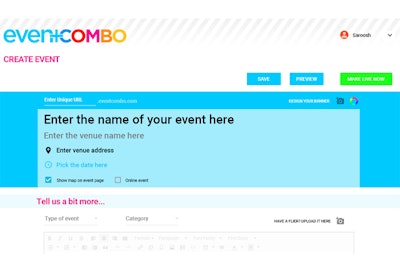
EventCombo is a ticketing system that allows hosts to bundle event tickets with other things attendees may want to purchase, such as meals from nearby restaurants, parking, merchandise, and more. Merchants use the system to create and manage the deals they want to offer, and the system matches those deals with relevant events. Organizers receive a portion of the money generated by the sale of those items. Events that use the system are also listed on the EventCombo website and promoted through social media. The system launched June 6 and additional updates are planned for the next month.
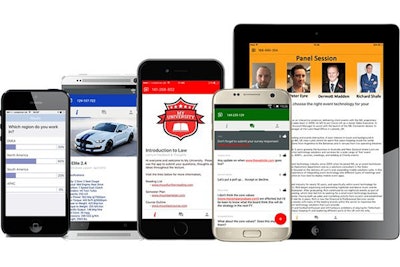
Meetoo, the real-time polling and messaging app from Lumi, released several updates in late May. Moderators can now disable the creation of participant profiles so audience members can use the app anonymously. The profile settings can be changed instantly so hosts can quickly adapt to changes in the mood or circumstance. Additional updates allow hosts to customize the app by adding instructions, speaker biographies, agendas, logos, photographs, and more.
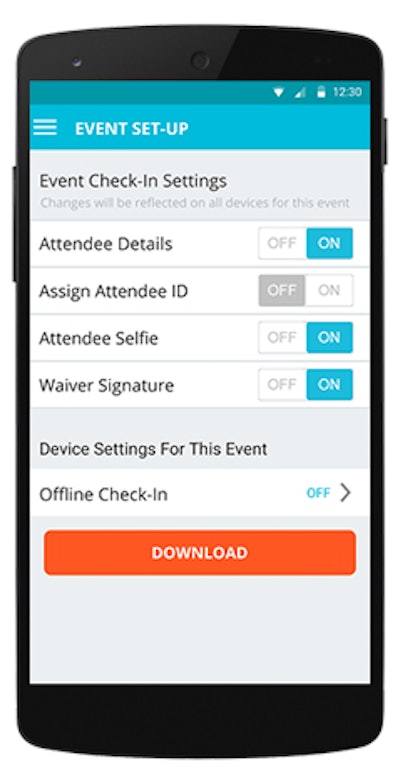
The new Event Assistant App from Events.com is intended to streamline the check-in process for hosts and attendees. In addition to a manual search by name, organizers can look up participants using voice recognition or by scanning a QR code; a quick “swipe right” then checks that person in to the event. Data refreshes in real-time and syncs across all devices to prevent duplicate check-ins. The app can also function in offline mode. Events.com launched the app in May. For now it’s only available for Android devices.
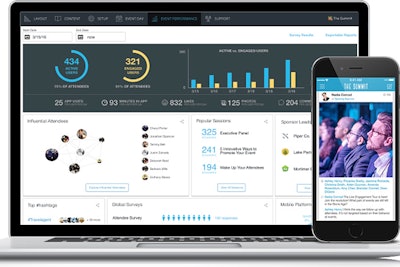
On June 9, DoubleDutch updated its Live Engagement Platform, which debuted in May as a system of applications that allow hosts to manage attendee participation, share sponsor and exhibitor communications, and analyze data. The new updates make it easy for hosts to manage dozens of events in one place, and to duplicate content from past events to save time. For attendees, the system can provide recommendations about sessions to attend and people to meet to personalize their event experience. It can also be used to streamline the scheduling of meetings with other attendees. The system tracks attendee behavior across the event so hosts can use that data to provide personalized follow-up.
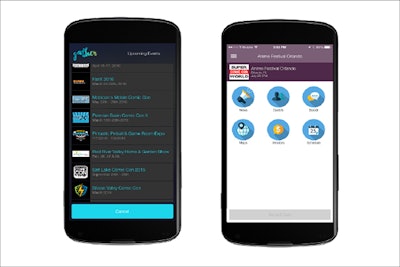
Planners can use Spingo’s new Event Master platform to manage a variety of aspects of their events. The system can handle ticketing, scheduling, interactive venue maps, exhibitor services, volunteer management, and analytics regarding customer acquisition and marketing. It can also be used to coordinate details for V.I.P.s, such as airport pick-ups, flight information, and expenses. Event Master also allows hosts to create a custom event app that attendees can use to purchase tickets, view schedules, and interact with other guests. The system debuted in February.
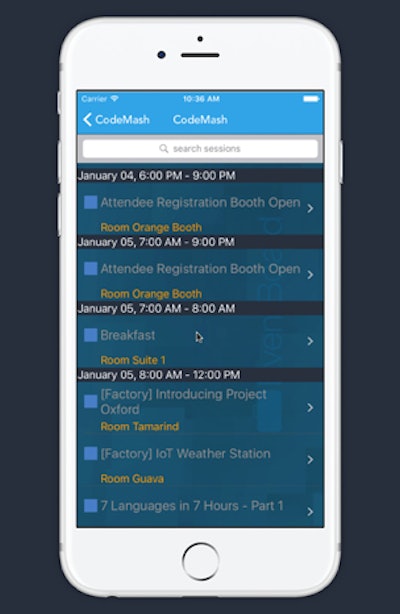
In January, EventsXD relaunched with a new business model that makes its multi-event app system free. The app can include digital floor plans, color-coded agendas, attendee communications, speaker information, surveys, social media integration, and digital materials. For additional fees, organizers can add premium features such as a sponsor showcase, push notifications, log-in codes, and more. EventsXD also has a new website feature that allows attendees to find and interact with events through their browser as well as the mobile app. Ticketing will be added to the system soon.

SelfieSpott is a new text-based photo branding opportunity from CTM Events. Planners can create a graphic overlay with their event’s logo and information. Then when guests text their photo to a designated number, they instantly receive a message back that provides a link to their image with the branded content added. The link has a “flip over” option so additional content, such as photos and sponsor information, can be included on the virtual “back” of the photo. Each SelfieSpott image also has social sharing links included so users can share their customized photo on Facebook and Twitter or via email or text. Planners also receive the mobile number or email of users for later permission-based follow-up.
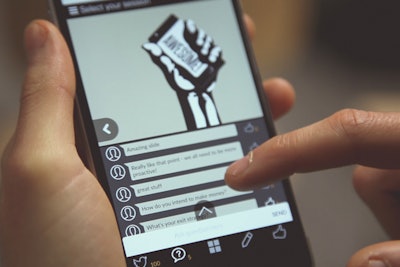
Glisser is an audience engagement system that makes presentations instantly interactive and shareable. It launched in 2014 and recently made several updates, including a PowerPoint add-in that allows presenters to share their slides one by one to audience smartphones as they present. Presenters can also use the system to instantly send polls to the audience and display the results. Audience members can submit questions anonymously to presenters and also vote on the questions that have been asked, which moves the most popular questions to the top. Glisser collects emails and data for every interaction, and the information can be downloaded as a spreadsheet or uploaded into a CRM system. It also has social sharing options so speakers can automatically share slides to Twitter as they present.
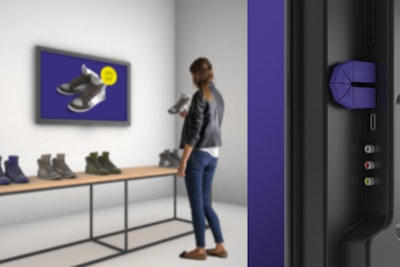
Estimote Mirror is a video-enabled beacon, which means the technology can not only communicate with nearby smartphones and apps but also take content from those apps and display it on nearby digital screens. For example, the system can be used to show personalized content on digital signs around a venue as guests pass by or to show product information at an exhibit booth that’s based on the attendee’s interests, needs, and previous buying habits. The system provides data such as the number, frequency, and duration of visitors to each beacon. Estimote Mirror launched in September.
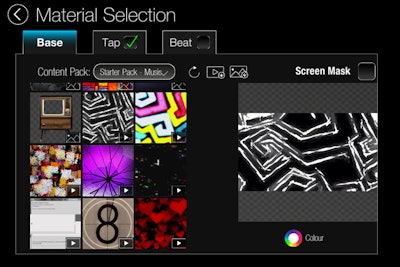
Optoma, a manufacturer of video and audio products, has created an app that enables users to quickly and affordably create projection-mapping experiences for their events. The Projection Mapper app, $4.99, is designed for use with a digital projector and any Android, iOS, or Amazon Kindle Fire device. The app walks users through simple steps to project images and video simultaneously onto multiple flat surfaces or three-dimensional objects. The app launched in October.
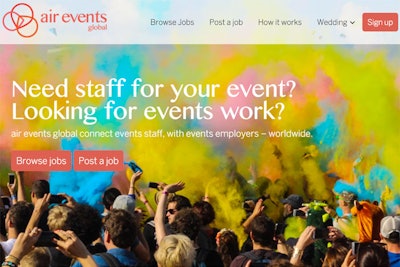
Air Events Global is one of the newest entries in the “sharing economy.” It’s an online marketplace for planners who have event work that needs to be done and freelancers who are looking for such work. The system covers all types of services, such as general event staff, catering assistance, entertainment, and more for both corporate and social events. Planners post jobs, including details about the location, time, and rate they will pay, and then they can communicate directly with freelancers whose profiles match their requests. Payments are held in the platform’s secure system until the job is completed. Both clients and freelancers can leave reviews in the system. Air Events Global will be available starting Friday.

